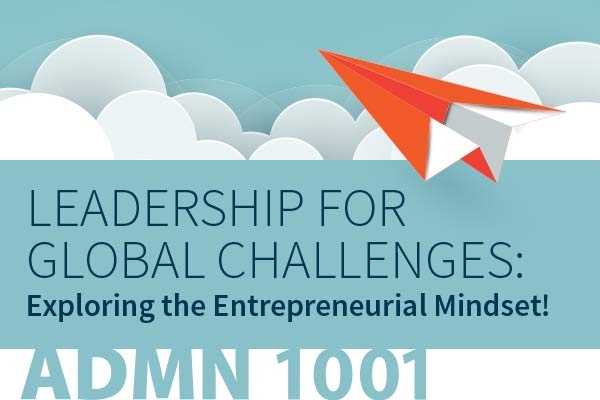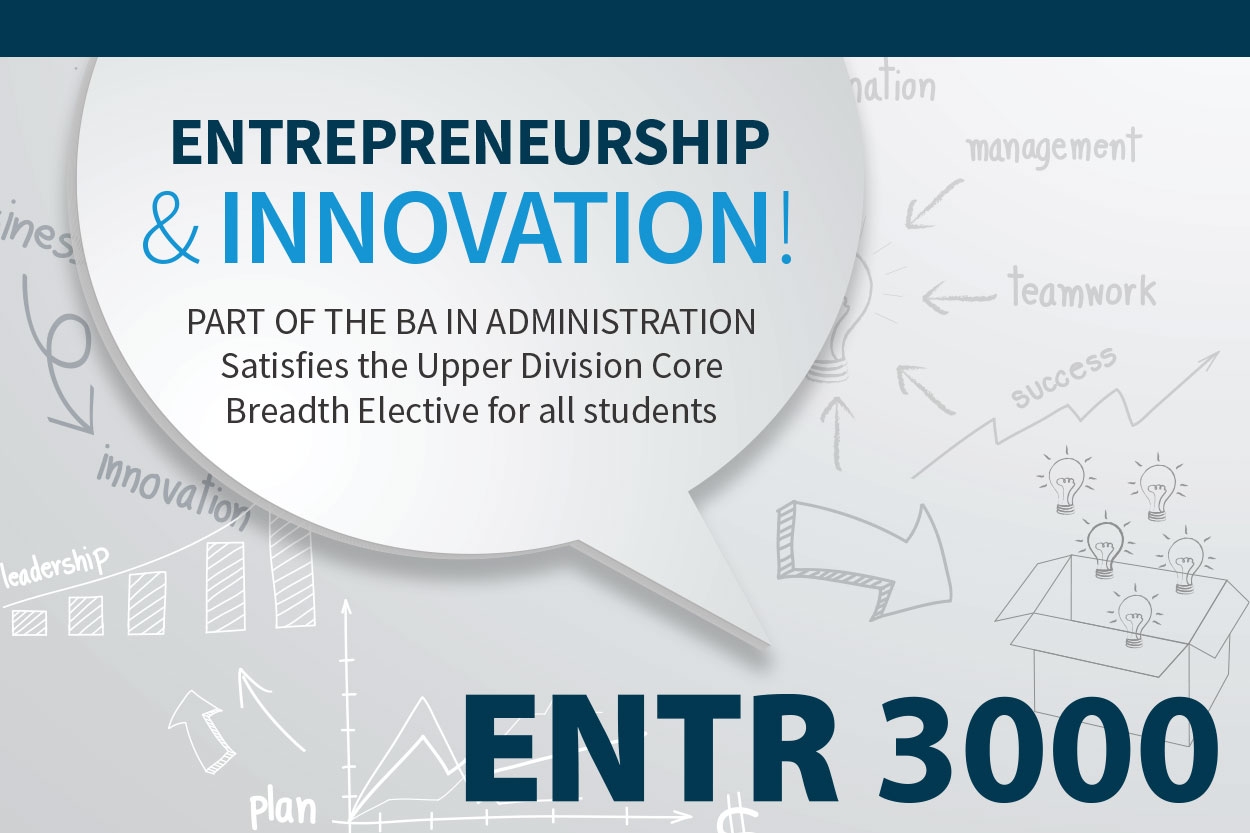Minor in Entrepreneurship
The Minor in Entrepreneurship is designed to provide added knowledge, skills, and market value for non-business students (e.g. computer science, biology, art, etc.) and existing business students (e.g. students with concentrations in management, etc.). By learning concepts such as opportunity recognition, new venture strategy, creative problem solving, and entrepreneurial leadership, students will possess the added capability to launch a new business or contribute to new business development in existing organizations.
Minor in Entrepreneurship - 18 units
Required Courses for Entrepreneurship Minor- ENTR 3000 Entrepreneurship and Innovation (3 units - offered all semesters):xploration of the key concepts of entrepreneurship and innovation. Examines the sources of new ideas and innovation, how ideas move from mind to market, the facets of the entrepreneurial mindset, and how entrepreneurial models and approaches can be applied in any organizational or societal context.
- ENTR 4420 Small Business Management (3 units - offered all semesters):Explores the importance of small business to our economy and examines key competencies needed to manage a small enterprise as owner or manager. Studies issues such as general management, accounting and finance, human relations, marketing, operations, and introduces the nuances and subtleties of these in the small business context.
- ENTR 5430 Ideation and Creative Problem Solving(3 units - offered Fall/Spring semester):Examination of the process of generating, developing and evaluating ideas to launch innovative and viable new ventures. Focus on identifying the difference between ideas and opportunities and the role of ideation, observation and creative problem solving.
- ENTR 5435 Startup Toolbox: Research Essentials for Entrepreneurs (3 units - offered Fall/Spring semester):Equips students with essential research skills necessary for successful entrepreneurship. Focus on qualitative and quantitative data analysis techniques to assess startup opportunities, including formal and informal interviews, industry analysis, the use of AI in customer discovery, and the basics of startup financial modeling. Prerequisites: Successful completion of ENTR 5430.
- ENTR 5440 Developing the New Venture(3 units - offered Fall/Spring semester):Introduction to the process of developing a new venture concept. Focus on transitioning ideas into a viable business venture with special emphasis on developing a sustainable business model and a hands-on business planning experience. Prerequisites: Successful completion of ENTR 5435.
- ENTR 3141/TA 3141 The Improvisational Mind (3 units - offered Fall/Spring semester):Development of foundational performance skills essential for success in any fast-paced, unpredictable business environment. Students will focus on developing cognitive flexibility, accessing creativity, exploring ensemble-based collaboration, mastering active storytelling, and honing their unique communication tools.
Required Reflective Essay:
ENTR 5980 Reflective Essay (0 units)
Come and Kick Our Tires!
/ ADMN 1001 – Leadership for Global Challenges: Exploring the Entrepreneurial Mindset a General Education (GE Category E) course that explores the concept of entrepreneurship and how the entrepreneurial lens can be employed to help individuals understand, interact and change the world around them by solving pressing personal, social and global problems. Students will learn the skills and abilities consistent with an entrepreneurial mindset to develop as a whole person by better understanding human behavior, creative endeavors, social relationships, one's relationship to the environment and how stress and failure can be managed.
/ ENTR 3000 – Entrepreneurship and Innovation WELCOME TO A WHOLE NEW APPROACH... Add new skills in entrepreneurship and innovation to your career toolkit! Examines the sources of new ideas and innovation, how ideas move from mind to market, the facets of the entrepreneurial mindset, and how entrepreneurial models and approaches can be applied in any organizational or societal context.



